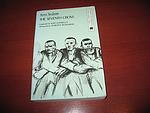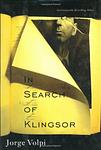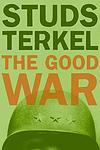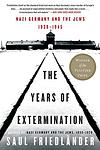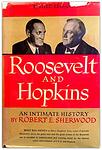The Greatest "Political, World War II" Books of All Time
Click to learn how this list is calculated.
This list represents a comprehensive and trusted collection of the greatest books. Developed through a specialized algorithm, it brings together 300 'best of' book lists to form a definitive guide to the world's most acclaimed books. For those interested in how these books are chosen, additional details can be found on the rankings page.
Genres
The "Political" category of books encompasses works that explore the theory, practice, and history of government and politics. These books may cover topics such as political ideologies, political systems, political institutions, political movements, and political leaders. They may also examine the relationship between politics and other areas of society, such as economics, culture, and international relations. Political books can be both informative and thought-provoking, offering readers insights into the complexities of the political world and the challenges of governing in a democratic society.
The category of "World War II" books encompasses a wide range of literature that focuses on the events, people, and consequences of the global conflict that took place between 1939 and 1945. This category includes historical accounts, memoirs, biographies, and fiction that explore the political, social, and cultural aspects of the war, as well as its impact on individuals and societies around the world. From the Holocaust to the Pacific theater, from the home front to the battlefields, "World War II" books offer readers a deep understanding of one of the most significant and devastating events in human history.
Countries
Date Range
Reading Statistics
Click the button below to see how many of these books you've read!
Download
If you're interested in downloading this list as a CSV file for use in a spreadsheet application, you can easily do so by clicking the button below. Please note that to ensure a manageable file size and faster download, the CSV will include details for only the first 500 books.
Download-
1. Catch-22 by Joseph Heller
The book is a satirical critique of military bureaucracy and the illogical nature of war, set during World War II. The story follows a U.S. Army Air Forces B-25 bombardier stationed in Italy, who is trying to maintain his sanity while fulfilling his service requirements so that he can go home. The novel explores the absurdity of war and military life through the experiences of the protagonist, who discovers that a bureaucratic rule, the "Catch-22", makes it impossible for him to escape his dangerous situation. The more he tries to avoid his military assignments, the deeper he gets sucked into the irrational world of military rule.
-
2. The Tin Drum by Günter Grass
The novel tells the story of Oskar Matzerath, a boy who decides on his third birthday that he will stop growing and remain a three-year-old forever. Oskar is gifted with a tin drum by his mother, which he uses to express his emotions and thoughts. Living in Danzig during the rise of Nazi Germany, Oskar's refusal to grow is a form of protest against the adult world. The book is a blend of magical realism and historical fiction, providing a unique perspective on the horrors of World War II and the post-war era in Germany.
-
3. Eichmann in Jerusalem: A Report on the Banality of Evil by Hannah Arendt
This book is a thought-provoking exploration of the trial of Adolf Eichmann, a major organizer of the Holocaust. The author argues that Eichmann was not a fanatical ideologue, but rather an ordinary individual who simply followed orders and bureaucratic procedures, highlighting the terrifying potential for evil in any system that values obedience over personal responsibility. The concept of the "banality of evil" is introduced, suggesting that horrific acts can be committed by ordinary people under certain conditions.
-
4. The Rise and Fall of the Third Reich by William L. Shirer
This book provides a comprehensive history of Adolf Hitler's Third Reich, from its inception to its downfall during World War II. The author, an American journalist who reported from Germany and Austria during the Nazi era, uses firsthand accounts, interviews, and Nazi documents to detail Hitler's rise to power, the mechanisms of the Nazi state, and the events leading to and during World War II, including the Holocaust. The book concludes with an analysis of why the Third Reich fell and the aftermath of its collapse.
-
5. The Seventh Cross by Anna Seghers
"The Seventh Cross" is a gripping tale set in Nazi Germany that revolves around seven men who escape from a concentration camp. The camp commandant erects seven crosses, vowing to hang each escapee on their return. The story primarily follows one escapee, who manages to evade capture and make his way back to his hometown. The narrative explores the psychological terror imposed by the Nazi regime, the resilience of human spirit, and the subtle forms of resistance within the German populace.
-
6. A Bell for Adano by John Hersey
Set during World War II, this novel follows an Italian-American U.S. Army officer who is assigned as the temporary administrator of a small town in Sicily. His main goal is to help restore order and normalcy for the townspeople after the chaos of war. His efforts are epitomized by his quest to replace the town's bell, which had been melted down for bullets by the Fascists. Despite the bureaucratic hurdles and the harsh realities of war, he remains committed to this symbolic act of restoration.
-
7. In Search of Klingsor by Jorge Volpi Escalante
"In Search of Klingsor" is a historical novel that revolves around the pursuit of a mysterious Nazi scientist named Klingsor. The story is set during World War II and the Cold War, and follows two main characters, an American physicist and a Mexican mathematician, who are tasked with finding and identifying Klingsor. The novel uses real historical figures and events to explore themes of science, war, and morality, while also delving into the complex nature of truth and deception.
-
8. The Good War by Studs Terkel
This book is an oral history of World War II as told by men and women who lived through it. It includes narratives from soldiers, civilians, and politicians alike, capturing a wide range of perspectives on the war. The book illustrates the complexities of the war, its impacts on individuals and society, as well as the aftermath. It delves into the human experiences of fear, courage, loss, and survival, providing a poignant and comprehensive account of one of the most impactful events in human history.
-
9. The Devil's Advocate by Morris West
In "The Devil's Advocate," a young priest named Blaise Meredith is tasked with investigating the life of a recently deceased man in order to determine his eligibility for sainthood. As he delves deeper into the man's past, Blaise uncovers a complex web of secrets, scandals, and personal struggles. Wrestling with his own doubts and desires, Blaise must confront the dark side of human nature and grapple with the question of whether true goodness can exist in a world filled with temptation and sin.
-
10. The Years of Extermination by Saul Friedlander
"The Years of Extermination" is a comprehensive historical analysis of the Holocaust, examining the genocide from 1939 to 1945. Drawing on a variety of sources, including diaries, letters, and firsthand accounts, it provides a detailed and harrowing account of the systematic extermination of the Jewish people during World War II. The book also explores the responses of various groups, including the Jewish communities in Europe, the international community, and the perpetrators themselves.
-
11. The Dead Hand: The Untold Story of the Cold War Arms Race and Its Dangerous Legacy by David Hoffman
This book provides an in-depth exploration of the Cold War arms race, focusing on the creation, development, and deployment of nuclear and biological weapons by both the United States and the Soviet Union. It also delves into the dangerous legacy these weapons have left behind, including the threat of nuclear proliferation and bioterrorism. The book combines historical analysis with first-hand accounts and interviews, offering a comprehensive and chilling examination of a critical period in world history.
-
12. Roosevelt and Hopkins by Robert E. Sherwood
"Roosevelt and Hopkins" is a detailed exploration of the relationship between President Franklin D. Roosevelt and his closest advisor, Harry Hopkins, during World War II. The book provides an inside look at the political maneuverings and decision-making processes of the American administration during this crucial period. It paints a vivid picture of the complex personalities of these two men and their roles in shaping the U.S.'s response to the global conflict.
-
13. Between War and Peace: The Potsdam Conference by Herbert Feis
This book provides a detailed account of the Potsdam Conference, a crucial event in world history that took place in the summer of 1945. It explores the interactions and negotiations between the three most powerful men of that time - Winston Churchill, Harry Truman, and Joseph Stalin - who were tasked with deciding the fate of post-WWII Europe. The book also delves into the political dynamics, personal conflicts, and the profound implications of the decisions made during this conference.
Reading Statistics
Click the button below to see how many of these books you've read!
Download
If you're interested in downloading this list as a CSV file for use in a spreadsheet application, you can easily do so by clicking the button below. Please note that to ensure a manageable file size and faster download, the CSV will include details for only the first 500 books.
Download



